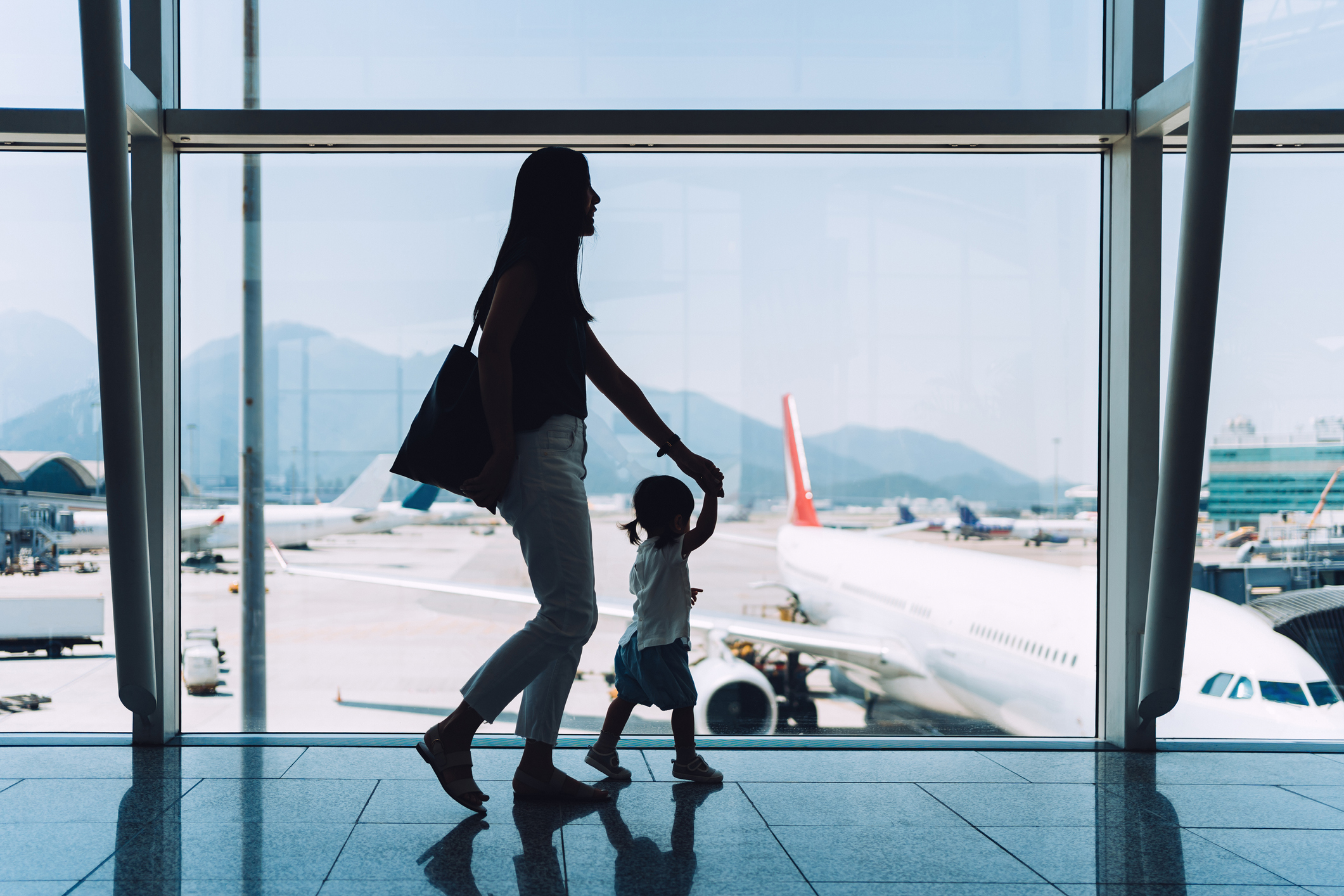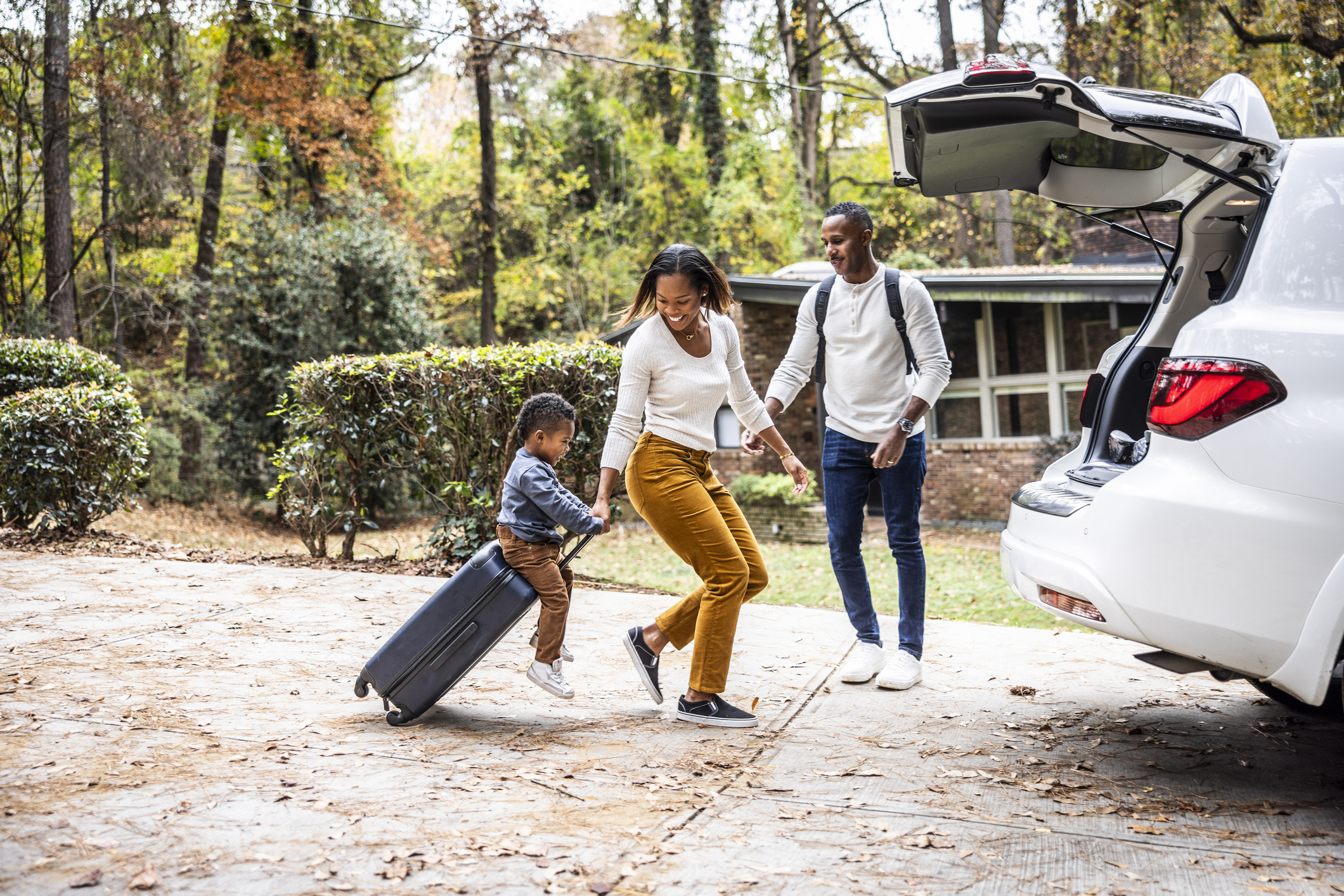How to save money on a last-minute holiday this summer - 15 family-friendly tips
We share the tips and tricks parents need to know to save money on a last-minute family holiday
Sue Hayward

If you're hoping to book a last-minute family holiday this summer, make sure you follow these money-saving tips to keep prices as low as possible.
With the school holidays in full swing, if you haven't managed to get away with the kids yet, you might be thinking about booking a last-minute holiday before the new academic year starts. While you might be able to book a holiday with free child places to keep costs down, family holidays are still expensive, especially when you have to go at peak times to avoid school fines. To help, we share these tips and tricks to help you keep your holiday costs under control.
15 ways to save money on a last-minute family holiday
1. Fly during the week of 19 August
As soon as the kids break up from school, some families like to head off on holiday as soon as possible so they are back in plenty of time to sort all the back to school shopping and get back into the swing of family life at home before the kids return to school. But according to research from Skyscanner, the cheapest week to travel in the summer holidays is the week of 19 August, which is 17 per cent cheaper than travelling in the week of 22 July. For a family of four, this can lead to an average saving of £268.
2. Fly midweek if you can
Opting for a midweek flight can cut the cost of your holiday, according to Evan Day, UK Country Manager at travel site KAYAK, who says: “Opting for midweek travel can be up to 60% cheaper on short haul, and up to 30% cheaper for longer haul flights.”
You can also save by signing up for the latest deals from free flight alert site Jack’s Flight Club and searching Skyscanner and KAYAK, as well as budget airline sites. It can also help to be as flexible as possible in terms of the time you fly, as well as which airport you fly from to get the best deal.
While you may have snapped up a cheap ticket, you should make sure to also check baggage rules. Bags in the hold may be included on long haul ticket prices, but with budget airlines you may have to pay more – even for larger cabin bags. Check sizes and weight limits with your airline.

3. Book flights and accommodation on a Tuesday or Wednesday
Weekends tend to be popular times to book flights and hotels, and so the prices might be higher at these times. However, if you wait until Tuesday or Wednesday, you might find that you get a better deal, when demand isn't so high.
Parenting advice, hot topics, best buys and family finance tips delivered straight to your inbox.
However, if you are buying a package holiday, a former Thomas Cook insider, told The Mirror, that the best time to book was a Monday. The insider revealed that this is because travel agents sometimes drop prices on a Monday to encourage customers who were mulling over a quote over the weekend to complete their booking.
4. Opt for less popular destinations
With Spain, France and Italy topping the list of most popular holiday destinations, according to a survey by HSBC UK, it's worth thinking outside the box in terms of destination in order to bag a last-minute deal.
If you have your heart set on those countries, you could opt for a less popular city. For example, if you were after a trip to Paris, The Travel suggests you could opt for Lille, Bordeaux, or Lyon instead to get that Parisian charm at a cheaper price.
If you do choose a less popular destination, make sure you check the latest Foreign Office guidance before booking.

5. Take a gamble on a secret hotel
Booking sites like lastminute.com, offer deals on secret hotels, which can save your family up to 40 per cent. This is where you book your hotel room based on the hotel's star rating, its general location and a short description, but you don't find out the hotel's actually name until after you've booked.
It's a bit of a gamble, but with significant savings to be had, it could be worth it for your last-minute holiday. The lack of certainty might fill you with dread, however, you may be able to find out the hotel's identity beforehand. According to Which? "Many of the descriptions are taken directly from the hotel’s own website, so try googling a few key phrases to see what pops up."
6. Keep your eyes peeled for voucher codes before you book
Once you have your sites set on a destination, don’t forget to shop around online for discount codes. Sites like MyVouchersCodes often have money-off vouchers for at least a couple of the big holiday and accommodation sites, as well as some of the independents.
7. Be savvy when booking your hire car
If you want to book a hire car for while you are away, opting for the smallest car you can get away with and sorting your own excess protection insurance are key ways to save on the cost of your holiday car hire and keep fees as low as possible. Buying your own excess protection cover could cost you less than £3 a day, while buying it through your holiday car hire provider could cost around £190.
There's also a sweet spot in terms of the best time to book your holiday car hire, and it's good news for those planning a last minute holiday. Booking between seven and 13 days before you travel can save you around 27 per cent than if you book too far in advance, or try and book it when you arrive on your holiday.

8. Make sure you get travel insurance
According to research by GoCompare, 40% of holidaymakers don’t plan on buying travel insurance. But it's essential if you want to get your money back, should the worst happen and your family not be able to go on the holiday. It'll also be crucial if you lose your money or luggage while away, or if you or someone in your family gets ill or has an accident while abroad.
Money saving expert Martin Lewis says: "If you've booked a holiday abroad, and don't have travel insurance, do it now, today, do not delay. I admit I say this with a hint of desperation. EVERY summer, my heart sinks after someone asks me a question who'd had 'getting travel insurance' on their to-do list, but didn't prioritise it."
It’s always worth buying your travel insurance as soon as you book your trip, as you will only be covered if you have insurance in place at the time the event that causes you to to cancel happens. You can compare prices for travel insurance at GoCompare.
9. Check your passports
This might sound obvious but always check that your passport is still valid before you book your holiday. And you'll need to make sure the time left on your passport meets the rules of the country you are planning to visit. The government says it takes about three weeks to get a new or renew your existing passport, which might not leave you enough time if you are planning on getting away last minute.
The alternative is a last minute dash to the Passport Office and paying over the odds for a new passport. And that’s if you can even get an appointment before you go.
10. Make a list of the essentials
In the excitement of getting yourself and the kids ready for a last-minute, it'll be all too easy to forget something vital, that you end up having to buy at the airport, or at your destination. According to Julian House from My Favourite Voucher Codes: “One in three adults spend an extra £75 while they’re away simply because they forget to pack essentials.”
Make sure you have a list of all the essentials ready - including things like passports, travel adapter plugs, chargers, sun cream and boarding passes - to avoid having to scramble to find them on holiday or, in the case of boarding passes, pay an additional fee to get them printed at the airport.

11. Know how to check you can sit with your kids on the plane
When travelling as a family, you’ll understandably want to make sure you can all sit together on the plane - without having to pay extra. With budget airlines, if you want to sit together you’ll pay for the privilege, unless you’re prepared to take a chance and see what seats you’re given when online check-in opens.
Airline policies on how hard they try to seat smaller children with at least one adult in the party varies – so check the rules with your airline if you don’t want to take a chance. And if you’re going to have sleepless nights worrying – it’s worth paying to book seats in advance – which can be up to £12.99 per person with easyJet.
How to save money when you get to your destination
12. Save on eating out with the family
Booking an all inclusive holiday can help you budget as once there all your food and drink is covered. But if you’re booked an apartment and want to go out - lunch menus are often cheaper than the dinner version so it’s worth eating out earlier if you can. And check if you’ll be charged a cover charge for extras like bread – some restaurants do this while in others it’s free. Opting for set-price menu deals will also be cheaper than a la carte menus, but it may mean eating at off peak times and may not be offered on every day of the week.
If your accommodation has a kitchen or kitchenette, you could make significant savings by finding a local supermarket and preparing your own food. This can be especially useful when it comes to day trips - you can pack a lunch before you go.

13. Avoid roaming charges
During our time in the EU, we’ve been able to use our phones across Europe, safe in the knowledge that any calls, texts or internet usage would come out of our inclusive package. Post-Brexit, this is not necessarily the case anymore and holiday makers could find themselves facing hefty roaming charges abroad without realising it.
Check with your mobile phone provider before you leave home whether you are likely to be charged any roaming fees while on holiday. if you are, there are ways to avoid them. Before you leave home, download any flight information, maps, TV shows or music you may need on your holiday, so that you can access them without using your data.
You can also turn roaming off on your phone, and your kids phones, so you can’t accidentally incur charges. If your accommodation offers free WIFI, then make sure you use that if you want to check or post on social media, or call anyone.
14. Check any debit and credit card fees
More than one in three of us don’t check the charges on our credit cards while abroad according to credit card booster company Tymit. However that means you could be incurring extra charges without realising it. Most standard debit and credit cards charge a foreign transaction fee – typically between 2.75 and 2.99 per cent. This means for every £100 you spend on your debit or credit card, you may pay an extra £3 in fees. Check any charges attached to your debit or credit card using this calculator on MoneySavingExpert.com.
15. Always pay in the local currency rather than pounds
Always pay in the local currency to save money, even if you are offered the option of converting into pounds. Dynamic Currency Conversion, as it’s known, can ramp up your bill by around 5%. While it may not sound much on a smaller amount, if you’re paying that on every purchase, it’ll soon tot up. It could make the difference between having enough cash to see you through or needing to take out more to tide you over on the last few days of your trip. .
Jo Bullard, Director of Bank Accounts at Metro Bank, says: “When using your card abroad it’s increasingly common for shops, restaurants and ATMs to let you convert payments into sterling on the spot. This can take the hassle out of working out how much things will cost but it’s always worth being mindful that the exchange rate being used may not be as competitive as the exchange rate offered by your bank.”
For more family-friendly money saving tips, find out how you save up to £18 on cinema tickets with this secret Prime perk, where kids eat free this summer, and how you could get this Morrisons Family Picnic Box for less than £20.
Sarah is GoodtoKnow’s Money Editor. After Sarah graduated from University of Wales, Aberystwyth, with a degree in English and Creative Writing, she entered the world of publishing in 2007, working as a writer and digital editor on a range of titles including Real Homes, Homebuilding & Renovating, The Money Edit and more. When not writing or editing, Sarah can be found hanging out with her rockstar dog, getting opinionated about a movie or learning British Sign Language.